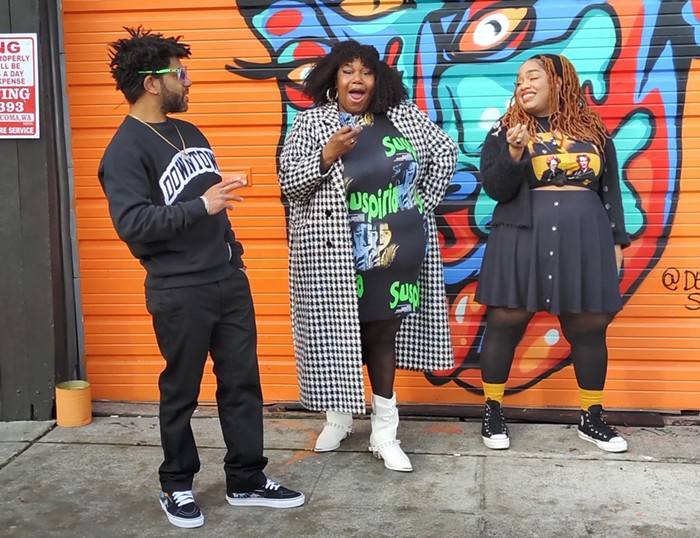Finding some good pot to celebrate 4/20 with isn't as easy in other places as it is for us. Maybe longtime Seattle Police Department officer Alex Chapackdee was just trying to alleviate that concern for stoners in the Baltimore area this year when he allegedly filled up his RV with pot on April 17 and drove across the country, "without stopping except to get gas or food," according to a complaint filed in US District Court and first reported by the Seattle Times. He pulled into a house in the Baltimore area on April 19, where investigators claim to have seen him unloading boxes out of his 2000 Fleetwood Flair RV.
This was not the first such trip. Unbeknownst to Chapackdee, the FBI had been tipped off about the alleged drug-smuggling ring Chapackdee was involved in two years earlier, and had tracked several previous trips from Seattle to Maryland and Virginia. But this latest operation the day before 4/20 would be Chapackdee's last. After Chapackdee left Baltimore to return to Seattle, investigators received a warrant to search the home and car of the person Chapackdee allegedly dropped the weed off with, finding and seizing 184 pounds of pot. The complaint charges Chapackdee, along with his brother-in-law Tuan Van Le, his nephew Phi Nguyen, and a fourth man, Samath Khanhphongphane, with conspiracy to distribute marijuana, a charge that carries a mandatory minimum of five years in prison, according to the US District Attorney's Office.
Chapackdee is a 16-year veteran of the police department and was immediately placed on administrative leave without pay after he was arrested on April 29. According to court documents, Chapackdee used his position on the police force to help further his criminal enterprise. The officer was paid $10,000 a month by the ringleader, his brother-in-law Tuan Van Le, to provide security for Le's Seattle-area pot grows and monitor any possible police action that could damage Le's pot trade, according to the charges. The court complaint also describes Le as dealing in large amounts of cocaine to East Coast casinos, but no charges are filed in connection with any cocaine trade.
Chapackdee made a bonus of $15,000 every time he drove his RV filled with pot from Seattle to the Baltimore area, a trip he would make in just two days in each direction, stopping for only gas and food, according to court documents. Investigators claim cell phone data and video surveillance show that Chapackdee made at least four such trips.
SPD chief Kathleen O'Toole called Chapackdee's conduct "disgraceful and disappointing" in a statement on May 8.
"While he will have his due process in the courts, I hope these charges demonstrate to our community that SPD will not tolerate corrupt behavior in our ranks," O'Toole said in the statement.
Chapackdee appears to have not been worth his $10,000 a month fee, given that he didn't know his smuggling network was under active SPD investigation. SPD was joined by the FBI, Homeland Security Investigations, and the Drug Enforcement Administration, according to court documents. Investigators from the Washington State Liquor and Cannabis Board were not involved in the investigation, according to spokesman Brian Smith. The WSLCB wasn't able to determine this week if any people charged or mentioned in the court documents were also owners of licensed legal pot businesses.
If Chapackdee's alleged pot-smuggling ring was connected to Washington's legal market, it could trigger enforcement from the federal government. Under the Obama administration, the Department of Justice told states that were legalizing weed that they would stay out of the way if the states were able to follow a few guidelines, including keeping the legal pot inside their own states. While that guideline came in the rescindable version of a legal memo, not an actual law, legalization states like Washington have done everything they can to follow the memo's guidelines.
If anything, this case might just show how important legalization is to regulating cannabis. Maryland has decriminalized personal use of cannabis and created a medical cannabis program in 2013. But regulatory problems have delayed the state's medical program for years, and medical pot has yet to be sold there four years after the system was set up.
In nearby Washington, DC, pot is legal but the Republican-controlled Congress has stopped any recreational pot stores from opening. If recreational pot was being sold in Baltimore and Maryland—a combined metropolitan area of more than nine million people—maybe stoners wouldn't be forced to rely on SPD officers to facilitate their high on 4/20, or any other day for that matter. ![]()

















